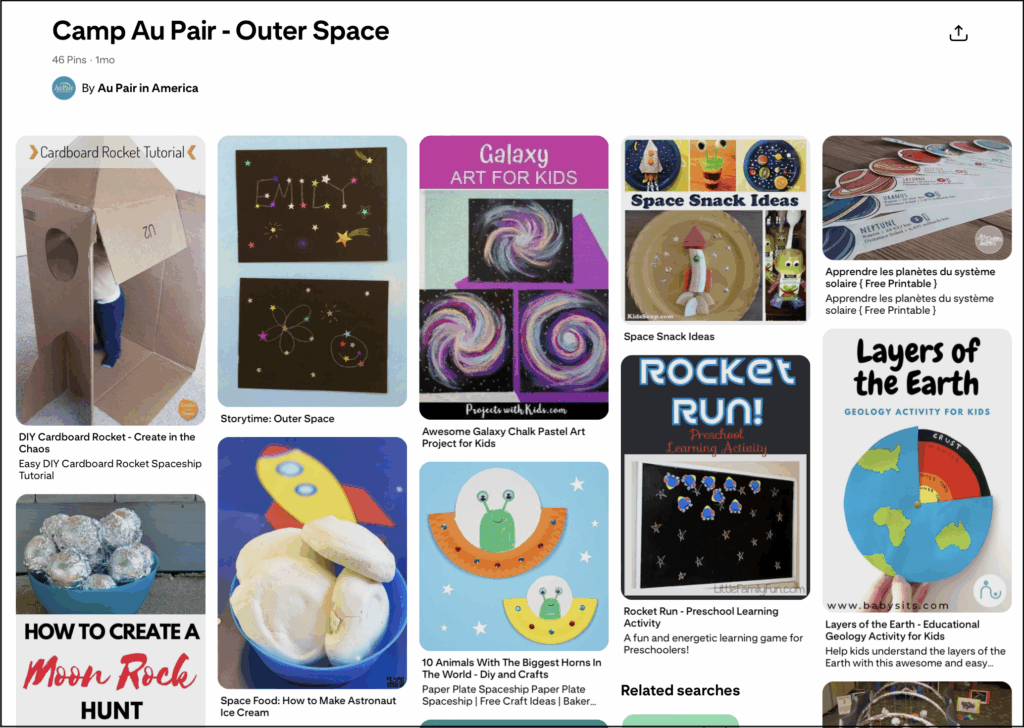Many au pairs say one of the hardest parts of their job is managing kids’ behavior. Sometimes it feels like every day is a battle: constant negotiating, tantrums, and repeated arguments. This can be exhausting and discouraging—especially when it seems like nothing ever changes.

One big reason this happens is when kids don’t have clear limits and boundaries. Children actually feel safer and calmer when they know exactly what’s expected and what will happen if they don’t follow the rules. But setting boundaries isn’t something you can improvise in the middle of chaos—it requires being proactive, planning ahead, and sticking with your approach.
The good news? Boundary-setting is a skill you can learn and practice. Once you get comfortable with it, you’ll find that kids respect you more, there are fewer battles, and your time together becomes a lot more fun.
Why Kids Need Boundaries
As an au pair, you might feel bad about saying “no” or worry that the kids will dislike you if you’re strict. But in reality:
- Kids want boundaries, even if they push against them.
- Clear rules make kids feel safe and secure.
- Boundaries make it easier for kids to know how to make you (and their parents) proud.
- Consistent limits reduce anxiety and prevent power struggles.
Think of boundaries as showing kids: “I care about you enough to help you feel safe and in control.”
Be Proactive, Not Reactive
One of the biggest mistakes au pairs make is waiting until a problem happens to set a boundary. By then, emotions are high, and it’s harder to follow through. Instead, think ahead:
- Plan routines in advance. Decide what the expectations are for meals, screen time, playtime, and bedtime.
- Communicate rules before the situation starts. For example, talk about screen time limits before handing over the iPad, not after.
- Practice consistency. If you let rules slide “just this once,” kids will learn that testing limits works.
Being proactive means, you’ll spend less time reacting to meltdowns and more time enjoying calmer days with the kids.
The 3 C’s of Boundaries
To make your limits effective, remember the 3 C’s:
- Concrete – Be specific and clear.
- Consistent – Stick to the rules every time.
- Clear – Keep the rules simple so kids understand.
When you aren’t clear or consistent, you enter the “grey zone.” In this zone, kids don’t know what to expect, which leads to testing, whining, and tantrums.
Three Steps to Strong Boundaries as an Au Pair:
- Plan boundaries in advance – Don’t wait for problems. Think ahead about where you need limits and what you’ll say. Discuss possible consequences with your host family in advance so everyone is on board.
- Teach and repeat – Explain the rule to the child ahead of time and have them repeat it back so you know they understand.
- Follow through – Stick with the boundary every time so kids learn to trust your word.
Examples You Might Use:
Mealtime
If a child keeps leaving the table, don’t wait for dinner to turn into chaos. Instead, set the rule before the meal begins:
“From now on, when we’re eating, your bum needs to stay in your chair. If you get up, that means you’re done eating. The next time you eat will be the next meal.”
Have the child repeat the rule back, then calmly follow through every time.
Screen Time
If kids fight you every time the iPad needs to be turned off, plan a routine ahead of time:
“When the timer goes off, the device needs to be turned off. If you don’t turn it off, that means no device tomorrow.”
Again, explain this before screen time starts and repeat the rule consistently.
Homework
If kids resist doing homework, don’t wait until they’re distracted or overtired. Plan the rule in advance:
“Homework is finished before playtime. If homework isn’t done, play is postponed until tomorrow.”
Keep it short and clear, remind them ahead of time, and then stick with it every day so the expectation becomes routine.
Pro Tips for Au Pairs:
- Think ahead about tricky situations and set rules before they happen.
- Make sure rules are age-appropriate.
- Be calm but firm. Kids respect confidence.
- Avoid long lectures—short and clear rules work best.
- Stick to routines—sleep, meals, and transitions are easier when predictable.
- Model the behavior you expect. If you leave the table often, kids will too.
Why This Matters:
Setting proactive, fair, and consistent boundaries isn’t just about avoiding tantrums. It’s about building trust and respect between you and the kids. When kids know what to expect, they feel more secure—and you feel more confident in your role.
As an au pair, proactive boundary-setting helps you:
- Prevent problems before they start
- Create smoother daily routines
- Avoid constant power struggles
- Build mutual respect with the kids
- Enjoy your time with them more
Remember: Boundaries aren’t about being “mean”—they’re about helping kids thrive. When you plan ahead, set clear expectations, and follow through, you’ll not only avoid daily battles but also build a stronger, happier relationship with the kids you care for.



